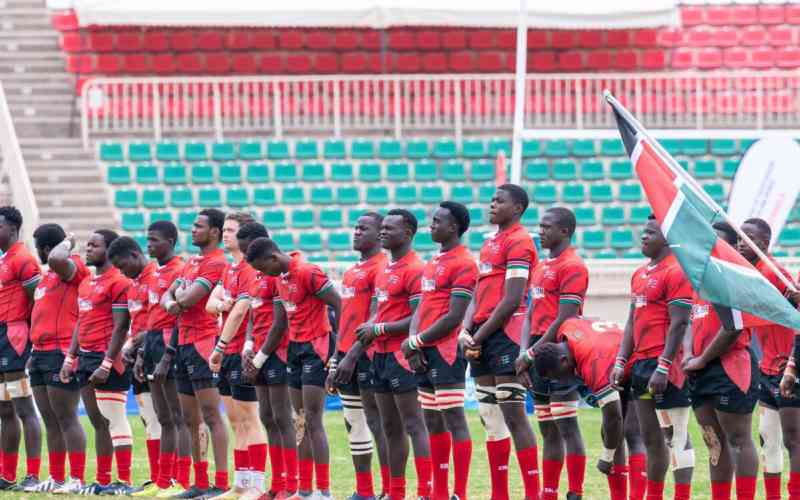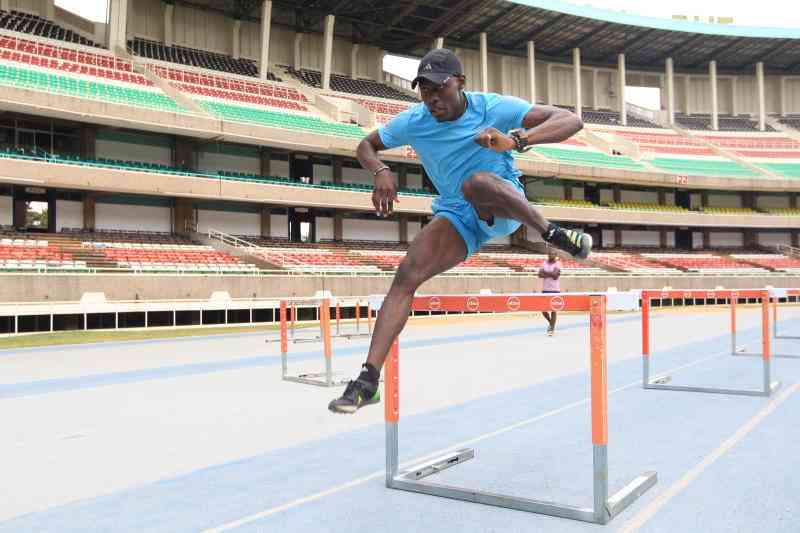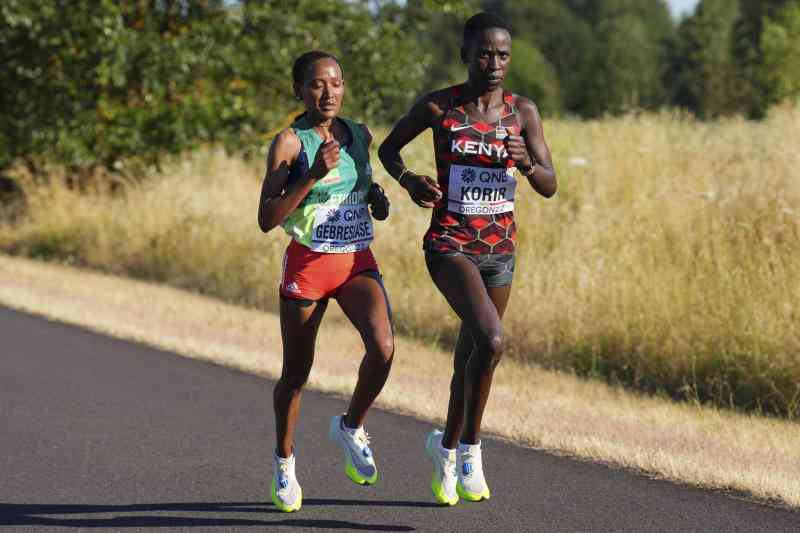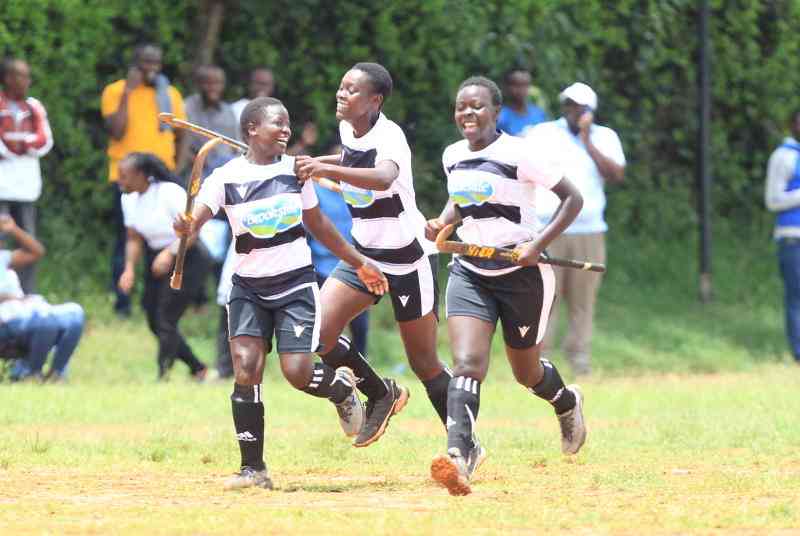Catherine Owiti has been a farmer since she settled at Obinju village in Nyakach, Kisumu County several years ago. She kept livestock and more so, sheep. But at one point she nearly gave up because of harsh weather conditions. Nyakach is a dry area, where cattle keeping is a big challenge.
"My sheep used to die because of drought. That was until the Consultative Group for International Agricultural Research started a Climate Change Agriculture and Food Security (CCAFS) programme here," she says.
The programme introduced in Nyakach in 2013, ensured residents were given the Red Maasai Sheep they are now using to inseminate local breeds to make them hardy. Mrs Owiti is one of the beneficiaries.
"I was given a ram in 2013. I inseminated my local breeds with it and the result has been awesome. The offspring are hardy and can survive in any environment. This is unlike before when they would die of disease during dry weather," she says.
She says in three months after birth, the offspring are ready for the market, and they fetch a good sum compared to local breeds.
"The Maasai sheep grow so fast, and they rarely get sick. They are quite heavy hence fetch good money in the market," she says.
Since 2012, the ram which was given to her at two years old has sired more than six lambs.
"We sell them expensively. When the local breed goes for Sh2, 000, ours go for double the price," she says.
The animals are in high demand, with many locals bringing their sheep to mate with her ram so that they too can boast of the 'tough' breed that has better market price.
Ms Ruth Aguonyo who hails from the same village was lucky to get both a ram (male) and an ewe (female).
These she received early last year, and currently boasts of over six offspring that are purely Maasai sheep.
"The sheep are on demand. I believe they are the answer to climate resilience in sheep," Aguonyo says.
Sheep is however not the only animal that has been imported to Nyando as a climate resilient strategy.
According to Joshua Omolo, an Obinju village resident, he received male and female Galla goats form the CCAFS project.
Galla goats are originally from the Arid Northern Kenya. They are also referred to as the Boran or Somali goat.
Mr Omolo says that when he got the goats, he had 12 local breeds. After six months, the female one started giving birth.
"After every six months, a new kid is born. I barely got any milk from the local breed. But I get about three litres from the Galla goats that are known as the milk queens of the Kenyan arid and semi-arid areas," he says.
Out of the three litres, Omolo sells a litre at Sh120 every day and uses the rest.
"Believe it or not, I sold all the local breeds and I now have 10 Gallas. When in financial crisis, I also sell the Gallas. While a one-year-old local breed of goat fetches Sh2, 500, a Galla of the same age fetches between Sh5, 000- Sh7, 000," he says.
The Galla are also known to be heavy and fast growing, with great disease resistance compared to local goat breeds.
"I do not have any other job besides farming. It is money from these goats that I use to pay school fees for my son who is currently in Form One. With the changing climate that has resulted to more drought than ever experienced before, it will be wise for people of Kisumu County to embrace Galla goats," he says.
He says the goats are not expensive to keep since they eat all sorts of plants to survive. And because they rarely get sick,he deworms them every three months.
CCAFS' East Africa Regional Programme Leader, Dr James Kinyangi says the arid area projects have also been rolled out in Siaya, Homa Bay, and Migori: areas close to the lake known as rain shadow.
"The aggro-ecological conditions of these areas are similar to those in areas like Narok, where Maasai sheep thrive and North Eastern where Galla goats survive," Dr Kinyangi says.
He says they introduced the two animals in the area because the local breeds were found to have high disease burden and slow growth, which results in low weight when taken to the market.
"Galla goat tolerates hardy conditions, survives for long and uses less water. We introduced 80 breeding units in seven test villages in Nyakach and Nyando areas. This has turned out to be a success," he says.
They also decided to introduce the Dorper Red Maasai sheep and the Red Maasai sheep, which locals are cross-breeding with the local breeds.
"These sheep are wonderful. They tolerate a certain type of worms that suck the blood of sheep and leads to stunted growth. Flukes are also common in Nyando, that is why we introduced these breeds," he says.
"This article was made in the framework of Media21 Africa Project by CFI, the French operator in media cooperation"
 The Standard Group Plc is a multi-media organization with investments in media
platforms spanning newspaper print operations, television, radio broadcasting,
digital and online services. The Standard Group is recognized as a leading
multi-media house in Kenya with a key influence in matters of national and
international interest.
The Standard Group Plc is a multi-media organization with investments in media
platforms spanning newspaper print operations, television, radio broadcasting,
digital and online services. The Standard Group is recognized as a leading
multi-media house in Kenya with a key influence in matters of national and
international interest.
 The Standard Group Plc is a multi-media organization with investments in media
platforms spanning newspaper print operations, television, radio broadcasting,
digital and online services. The Standard Group is recognized as a leading
multi-media house in Kenya with a key influence in matters of national and
international interest.
The Standard Group Plc is a multi-media organization with investments in media
platforms spanning newspaper print operations, television, radio broadcasting,
digital and online services. The Standard Group is recognized as a leading
multi-media house in Kenya with a key influence in matters of national and
international interest.






